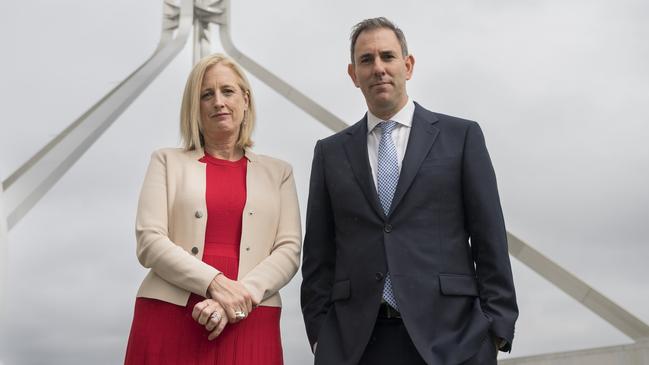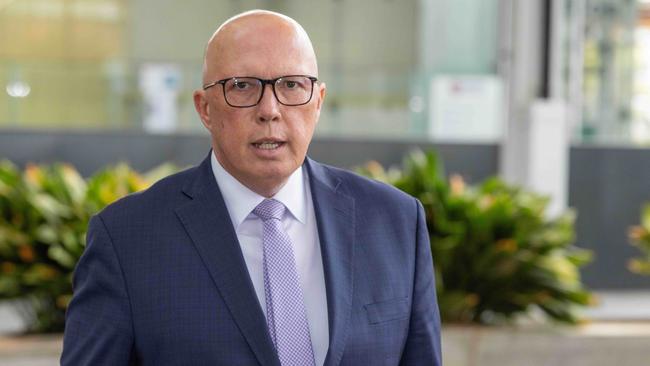Real disposable income to grow, amid inflation warning
Households will have at least $2800 extra disposable income on average next financial year according to new budget figures, as Treasurer Jim Chalmers signals more tax changes to incentivise investment.
National
Don't miss out on the headlines from National. Followed categories will be added to My News.
Households will have at least $2800 extra disposable income on average next financial year according to new budget figures, as Treasurer Jim Chalmers signals more tax changes to incentivise investment.
Treasury has forecast Australians real disposable income will grow by 3.5 per cent in 2024-25 due to increased wages, lower inflation and more take-home pay via the stage three tax cuts.
Based on the latest Australian Bureau of Statistics data of average equivalised weekly disposable households income of $1,124 in 2019-20, a 3.5 per cent increase would mean at least $39.34 extra per week.
Stage three tax cuts alone are expected to contribute to one per cent of households’ increased purchasing power, with the average worker estimated to keep an extra $1,888 of their wage in 2024-25 compared with the current financial year.
Mr Chalmers said a combination of stronger wages, tax cuts and easing inflation would result in Australians having more to spend on the things they need.

“This is all part of a big focus in the budget on helping to ease cost of living pressures,” he said.
But economists have warned higher incomes must come with a boost in economic productivity to offset any inflation fuelled by a rebound in household consumption.
CEDA chief economist Cassandra Winzar said the Reserve Bank board this week flagged ongoing concerns about inflation, which was “tracking in the right direction” though “slower” than hoped.
“Anything that delays getting inflation into the target range is likely to prolong cost of living issues,” she said.


“Without the necessary corresponding productivity, wages growth can and will increase inflation.”
Ms Winzar said the impact of increased wages and income varied significantly, with older and more established households that have paid off a large amount of their mortgage more likely to be “out there spending” extra money.
“Whereas younger generations that are renting or have got into the housing market quite recently are really having to cut back their spending more and more,” she said.
In addition to the stage three tax cuts, Mr Chalmers on Wednesday confirmed the May 14 budget would have “some other tax changes”.
“What you’ll see is an emphasis on tax reform that will incentivise the kind of investment that we want to see in the future of our economy and in a future made in Australia,” he told ABC radio.
“In all of the budgets we’ve done so far there has been modest but meaningful tax reform … and people should expect to see more of that on Tuesday night.”
Mr Chalmers specifically ruled out changes to taxation rules around housing such as negative gearing, but said there would be measures that incentives the type of private investment the government wanted to encourage.

Speaking in Queensland on Wednesday, Opposition Leader Peter Dutton claimed “every decision” made by Labor in its past two budget had driven up inflation.
“If you drive inflation up, then you increase interest rates and you keep them higher for longer,” he said.
Finance Minister Katy Gallagher this week said the government had looked “line by line” for budget savings, including about a billion-dollars from reducing the use of external labour, consultants and contractors in the public service.
But Ms Gallagher said there remained “unavoidable” budget spending around extending programs that were due to expire, as well as upgrading IT for health and aged care services and the online portal myGov.
“These are significant investments that have to be made,” she said.





